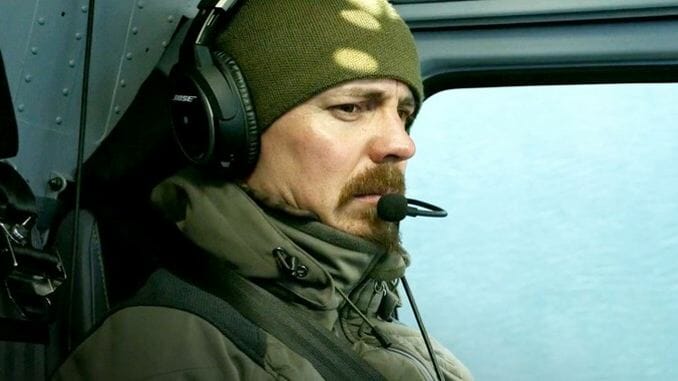Overstuffed Adaptation Attack on Finland Feels a Little Too Real

Between the events of January 6, 2021 (the radical right-wing insurrection against the U.S. Capitol provoked by Donald Trump) and the events of February 24, 2022 (Russia’s latest effort at conquering the sovereign nation of Ukraine), movies about attempted coups or attempted invasions have come to hit a tad too close to home. This is poor news for Attack on Finland, Finnish director Aku Louhimies’ adaptation of Ilkka Remes’ 2006 novel Omerta 6/12. Once upon a 2013, a film like Olympus Has Fallen was a commercially viable escapist fantasy; today, even with the material emigrated to the Land of a Thousand Islands, it feels a little too real.
While no movie gets to pick its moment and, perhaps in this moment, it’s impossible to watch this movie fully divested from its accidental reflections of our grim reality, Attack on Finland has other problems. Finland celebrates its Independence Day every December 6. In Attack on Finland, festivities at the presidential palace are cut short by terrorists who take President Koskivuo and the rest of state leadership, intent on destabilizing European politics and security writ large. The only man who can stop them? Markus “Max” Tanner, played by Spike Lee’s favorite overseas import, Jasper Pääkkönen.
The plots—the movie’s and the terrorists’—run on the over-complicated side, Attack on Finland’s being especially convoluted. This is standard-issue spy-action-thriller stuff: Whether based on Steinhauer, le Carré or Clancy, whenever international espionage mixes it up with gunfire and world-altering stakes, the threads are numerous and their intersections are labyrinthine. Attack on Finland is no exception. But Louhimies appears boxed in to an extent by the story’s original medium, which is more expansive and allows for understated, sparsely visited romance to bloom between Tanner and his intelligence partner, Sylvia Madsen (Nanna Blondell).
Sylvia starts out the movie fatally shooting the teen son of Russian gangster Leonid Titov (Juhan Ulfsak) during a covert mission to nick Titov’s laptop from his fancy-pants home. This detail colors her character and Tanner’s relationship to her, and later recurs to bite everybody on their camo-clad asses when Titov is revealed as one member of the shadowy cabal involved in the presidential hostage crisis. Also part of that cabal: Young Vasa Jankovic (Sverrir Gudnason), a Serbian burdened by an Atlas-sized moral conflict as well as undying filial loyalty to his imprisoned dad (Miodrag Stojanovic), who refuses to acknowledge Vasa as his son on account of being a raging prick. Dad is leveraged as incentive for Vasa’s participation. It goes on. And on. And on.
-

-

-

-

-

-

-

-

-

-

-

-

-

-

-

-

-

-

-

-

-

-

-

-

-

-

-

-

-

-

-

-

-

-

-

-

-

-

-

-








































